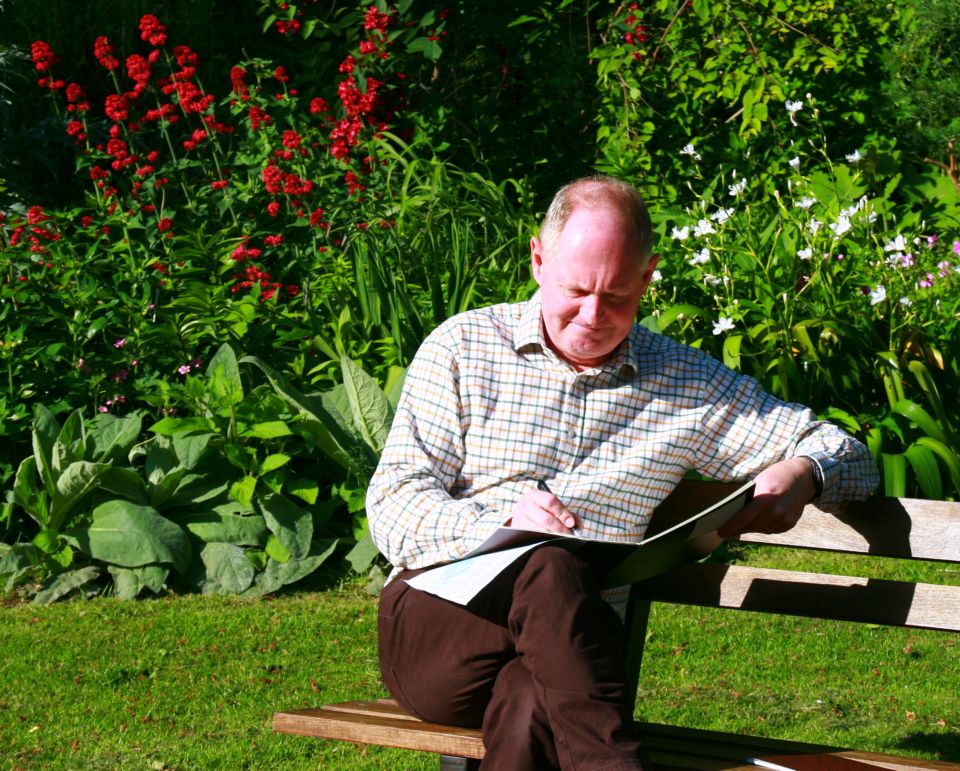As part of my residency I wanted some poems in the garden for visitors to read. They need to be reasonably short, so that they are approachable and easy to display. I’ve found some card holders which will push into the soil and hold a postcard or similar that I hope will do the job. Now for the poems.
Given a set of formal constraints and an approximate tone I often find a new series of poems comes naturally. So I decided to design a form that would work at postcard size, be relevant to the situation and at the same time allow for playfulness.
First stop was the word ‘Arlington’ and the community association’s simple but effective ‘A’ logo. That gave me my first constraint: every poem starts with the letter ‘A’. It then seemed obvious to add rules to insist that the last letter had to be ‘n’ and there would be an ‘-ing’ somewhere in the middle. (Given how much effort we often put into avoiding or eliminating the jingling -ing it’s quite fun to have a form that insists on one.) I think it is important that the poems relate to the garden and draw readers back to it in some way, so the initial subject matter must be something in or suggested by the garden (though what the poem is ‘about’ may be a different matter). And of course as all-comers art no swearing, though I don’t expect to avoid sex entirely (‘in the best possible taste’).
That much for conscious plan-making. The next step was to write a few and see what happened, what other features suggested themselves and what kind of voice the poems want. From that start machinery has developed. I won’t bore you with everything which makes the scaffold to be kicked away once the poem is left to stand on its own legs – but here is an example (and in draft!).
Pareidolia: Olive
As you turn away you think ‘Was that a face?’ but was it
hurt or smiling? Look back – the cracked and warty
pavement of the bark – a bit of both then.
I hope this is approachable and complements the garden, although I notice that as the sequence continues the switches of tone inside each poem are becoming more frequent and maybe more extreme: Berryman in a good mood meets Alan Titchmarsh in a worse one.
[P.S. Pareidolia is the phenomenon of interpreting random shapes as meaningful objects (which can be more or less conscious). I suspect I’ll kick away the fancy term from the title for installation in the garden – and the similar fancy words for different forms of sensory interpretation/hallucination (paracusia, paresthesia, phantosmia, paraguesia) which are also part of the scaffolding.]

 I am a poet writing in a range of styles from performance-led to page-based and limerick to avant-garde.
I am a poet writing in a range of styles from performance-led to page-based and limerick to avant-garde.